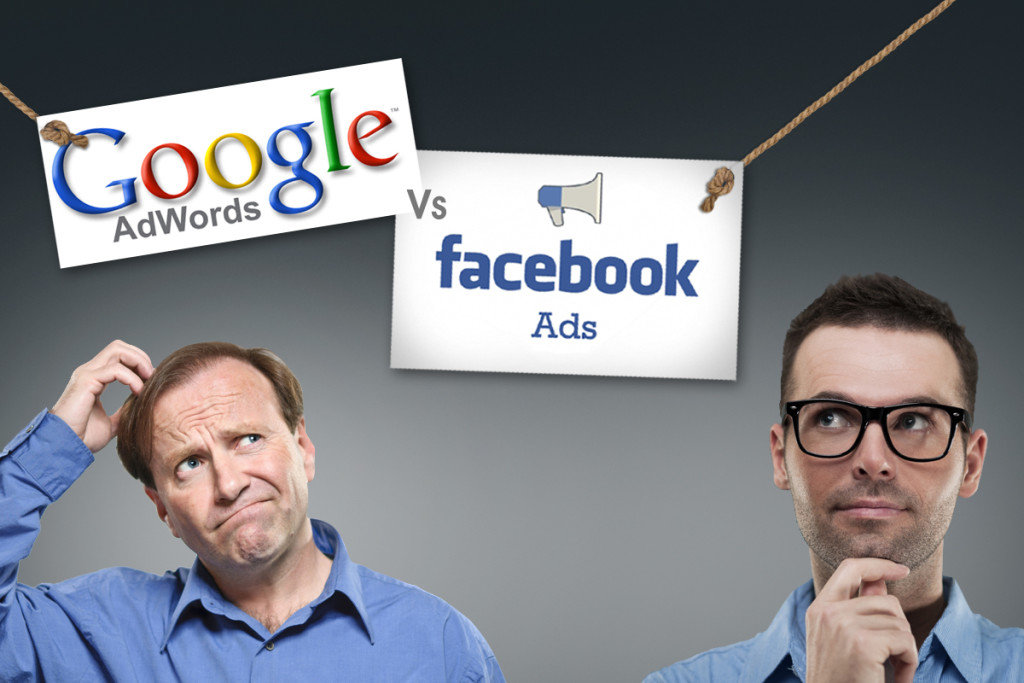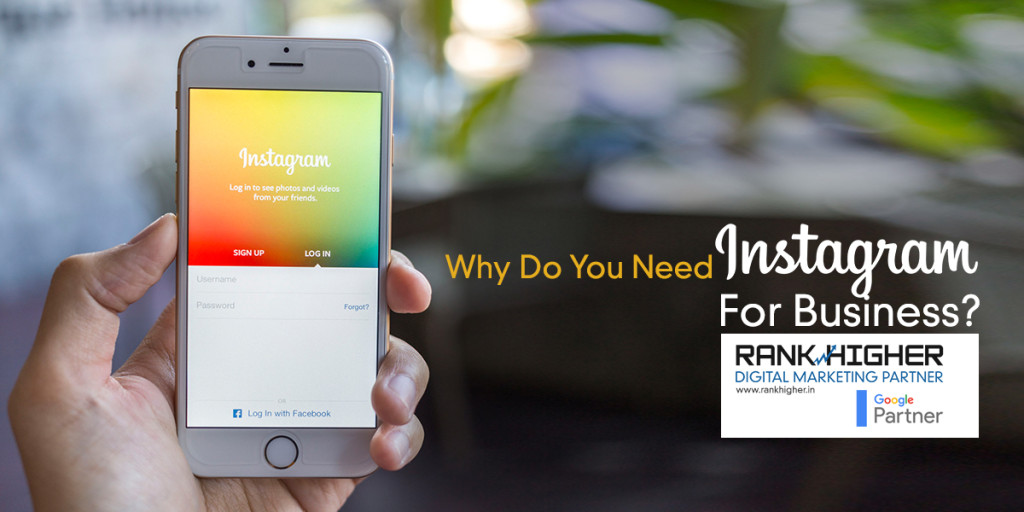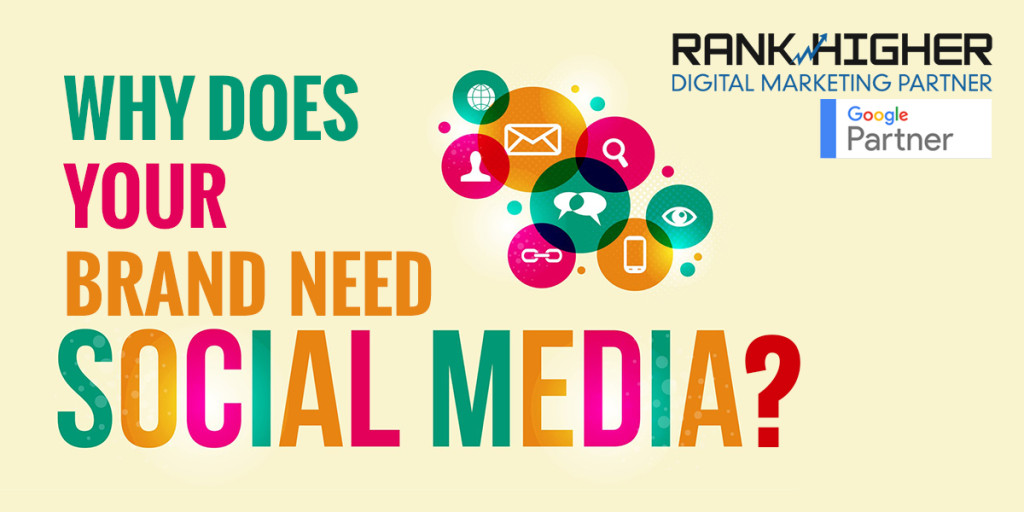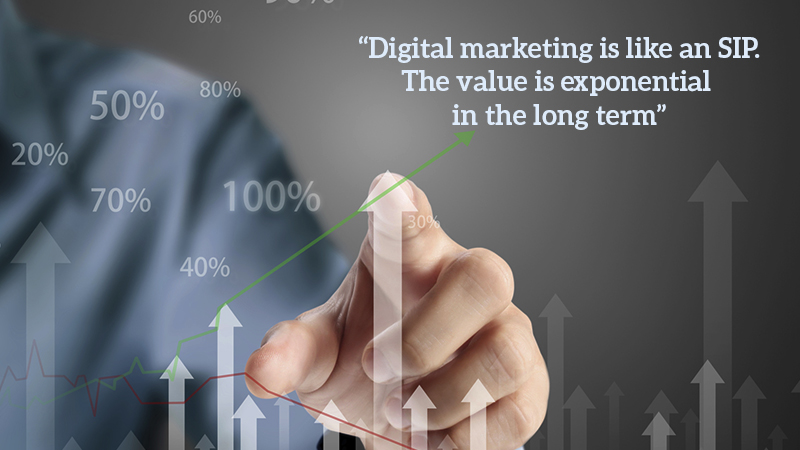Google and Facebook are both dominant advertising channels and have tons of data about users and their online behavior. Most users are either searching for information on Google or are logged into Facebook catching up on latest feeds from their friends, brands and other topics of interest. If you are online, chances are you will be on using either of these 2, for a substantial period of time.
So naturally, for marketers this is the holy grail of marketing. Marketers follow you everywhere you go. After all, their job is to market their products or services to you, so wherever they get your attention span, they will be there.
For a lot of businesses, the question remains, which one should we go for? Should we go for the tried and test Google Adwords channel or does Facebook advertising make more sense for me.
The answer to this is not as clear as chalk and cheese and I would say it depends. Let us take an example of 2 recent client projects we have been working on. We have seen some very interesting results and therefore it makes sense to discuss them. This will give you some idea of these 2 platforms and how you can go about using them.
Google Adwords vs Facebook Ads
Case 1 – An Immigration Consulting Company in Bangalore.
ABC is an immigration consulting company in Bangalore, specializing in Australian, Canadian, and Hong Kong immigration visas.
When we started the engagement, our objective was to get them more leads. Their main competitor was doing 3-4 times more business per month as compared to them.
So, we started off with Google Adwords campaigns. The idea was simple; we will research the keywords relevant to their business, and we will create campaigns targeting those keywords. We did a lot of research and created almost 10-15 campaigns. After the ads went live, we were able to get about 5-6 leads from Adwords every day. This was a big jump from what ABC was receiving earlier for a particular line of their business.
However, the average Adwords Bid value was very high, and we were spending close to 1 lac a month for about 150-200 leads.
The client was happy because their business received a good boost in sales and was earning good profit.
Then we started with Facebook Paid ads. And here are some interesting stats. We spent close to INR 20K in month 1 and we generated about 300-350 leads. That is double the leads at 20% the price as compared to Adwords. A straight up jump in ROI of 10X, by using Facebook. The client was ecstatic; so much so that they had less resource to cater to the leads!
How did we achieve this massive success?
The way Facebook marketing works is very different from that of Google. Google ads are intent based. If you are looking for a specific product or service and are searching on Google, the ad will show up. In this case, if a user is looking for an immigration consultant, they will search on Google and the ad will show up.
On the contrary, Facebook marketing is more of push marketing. You will need to have a clear understanding of the profile of your ideal customer. Then you can target those people with ads, which you believe will be highly relevant and might pique their interest. And when they click on the ad, they may choose to fill in your contact form. So, Facebook ads are not intent based. Rather, you are reaching out to people with your product/service and expecting that what you propose will interest them.
Think of Facebook ad as like any other ad on a magazine or a newspaper or a television. The only difference being, you can target the ad to only those people who will most likely be interested. And you can measure the impact of your ads much better than you would do typically with other ATL techniques. This makes your Advert more powerful and can get you very high returns.
The success of your Ad will depend on 2 things:
- How relevant your Ad is to your target audience
- How compelling is your product/service for your target audience to opt-in or buy your product.
In the case of the immigration consultancy, we realized that IT sector Employees are their biggest and most profitable customer segment. Countries like Australia and Canada give PR to highly skilled employees such as those working in IT companies much easily as compared to people working in other sectors.
So, when we devised the ad, our objective was to specifically target IT employees. We picked 7-8 MNCs in Bangalore who have the maximum employee strength and have high reputation in global markets. Next we narrowed down the demography further by age. We figured out that, people with at least 5 years of experience have higher chances of getting a PR than those who are fresh. Therefore we chose to go for employees who were between the age range of 30 to 40. We did not go for over 40 age group, because most people will be married by then and have kids. So chances are slim that someone with family and kids will want to shift their base to foreign locale.
We created the Ad with compelling text. To draw attention of the user, we actually used the company name. For example, if you are working with let’s say Intel, our Ad will say – Working at Intel? Interested to live and work in Australia? Check this
When you are working with Intel, and you see an advert that speaks directly to you, you are more likely to click that ad, than an ad that says – Working in an IT company? Interested to live and work in Australia?
This will get your user interested and he will click on the ad and come to your landing page. Then your landing page should be good enough to convert that user. The landing page should build on the ad that you displayed and should interest the user.
In case of Adwords, we did not have control over who is clicking on the Ads. Anyone out there could be looking for an Australian PR. You cannot stop him/her from searching or clicking on the ad or filling in the form. As a result, the quality of those leads is not defined. For all you know, fresh college pass-outs and diploma holders with little to no experience can click on your Ad. You will end up spending a lot of money without getting good quality leads.
Case 2 – Experience Based Travel Company
The company in question, let’s say TC, is an online travel company. They provide high quality experience based travel, as opposed to the multitude of budget travel companies out there. They do not offer discount packages. Their main focus is to give quality experience, even though they may come at a high price. They take pride in creating unique travel products which are mostly used by frequent travelers who prefer experience over cost. They do not cater to budget travelers.
We have been working with them in their paid campaigns. We have made some very interesting observations:
- Google Adwords is getting 4-5 times more conversions as opposed to Facebook Ads.
- Cost to acquire a lead is less in Google Adwords
- However, the quality of leads is not great for Adwords.
This again comes down to the fact that, they are a little high end luxury travel company. But people searching on Adwords, could be anyone. And mostly people who are searching on Google are shopping online to find the best deals. They are the cost conscious people.
In case of Facebook, you may not know if the person is actually looking to travel to a particular destination. But you can definitely target people who are married, between age 30-40, use an iPhone, and a frequent traveler and are looking to travel. This level of customer profiling will in all likelihood put your Ad in front of someone who has the got the propensity to pay for a luxury customized travel, who is not cost conscious and is looking to travel. The chances of conversion will depend a lot on the landing page as well as your offering. The conversion rate might be less as compared to Google, but you are sure to get good quality leads.
In both these cases, we see something very interesting –
Although Google Adwords is intention based, you are not assured of the quality of leads. In Facebook, you do not know the intention of the person. However, if you can put an attractive ad to the right demography, you may end up getting high quality leads.
So, now the most important question is – Which one do you choose?
The answer depends on the service or product you are selling. If you have a product or service for the mass market, then Google Adwords may be the right choice for you. But if you are selling something which will only appeal to a very specific audience, Facebook is the right choice. Also, since Facebook is not intent based, you are creating an intent. Your prospect may be interested in what you are offering but may not be actively searching for it. In this case, Facebook works better.
Besides, Facebook ads are way cheaper as compared to Google Adwords, which will work in your favour.
If you have a business, which is not yet been searched on Google, then Facebook is obviously the better option. For example, if you are a laundry business, and few people are searching on Google for laundry services, then you can use Facebook to target the audience who would want to pay a premium for the comfort of getting laundry picked up from home and delivered.
Facebook’s biggest benefit is, you can profile your customer and can target your ad to only those who are most likely to convert.
For most businesses which are cash rich, both Facebook and Google Adwords are great channels to target as many people as possible.
The idea is to play smart, know who your customer is, where they are and targeting him/her in the best possible way.





